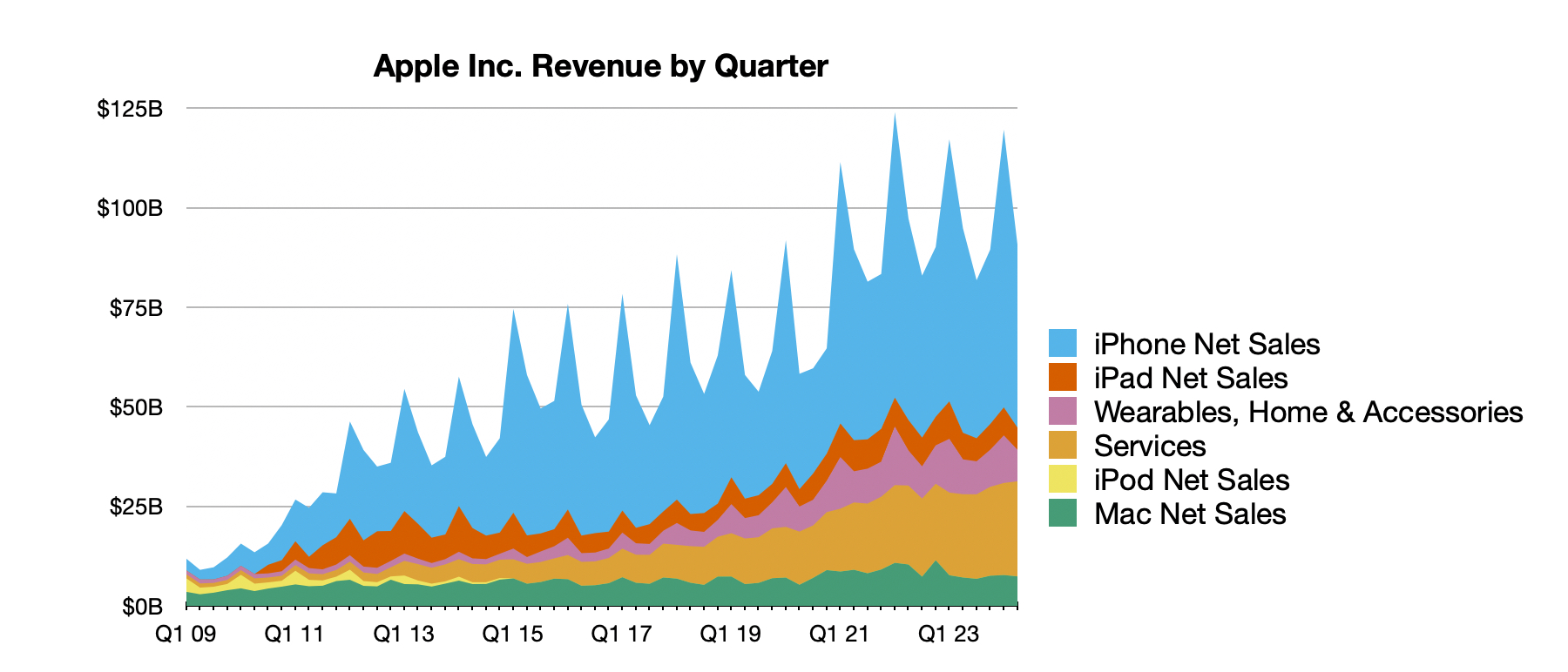Increasing competition with more smartphone platforms was never the goal of the DMA. It was to ensure that the two that remained, iOS and Android, weren't able to use their duopoly position in the market in a manner unfair to other businesses and/or consumers. Sorry, if you missed the plot and thought that was the goal.It doesn’t even increase competition because, by my count, there are the same number of mobileOS vendors prior to DMA as there is after. And, there’s nothing in the DMA that makes a new one likely… actually it will make new competition more UNlikely.
What does "properly funded" mean to you? Was RIM not "properly funded". Was Microsoft not "properly funded"? The reality that some folks either don't realize or simply choose not to acknowledge is that the market isn't going to bear half a dozen platforms all trying to do essentially the same thing. Other companies (app devs, smart home product vendors, automotive OEMs, etc.) only have so many resources. They're only going to spend money supporting the most relevant platforms. This leads to a viscous cycle where companies support only the most popular platforms, which then leads consumers to buy the devices on the platforms that works with their other things or has the apps they want, which in turn causes even more companies to support those few platforms that consumers are actually on. This is exactly what played out during the first 5 years of the mass adoption of smartphones. Palm died. Blackberry died. Windows Mobile died. Hell, MS even tried a second time with Windows Phone. That died too. The reality is that alternatives were properly funded. Even potential alternatives would be properly funded, but those companies (namely Amazon and Meta) aren't stupid enough to throw hundreds of millions of dollars at a project that's essentially destined to fail. If companies couldn't take a bite out of Apple and Google in the early days, they certainly aren't going to fare any better now with those companies' entrenched market positions. The only hope other companies have is with a paradigm shift to a new product category. Meta is clearly betting on AR/VR, but I think the AVP is showing that this product category is not exactly ripe for mass adoption yet. It seems that smartphones will remain the most important type of platform for at least the rest of this decade.What if there were a sizable number of folks that didn’t like how locked down Apple was, but wasn’t quite happy with Android? Prior to recently, there was a wide open gap that, apparently, no one was servicing which could have meant that a properly funded competitor could have arisen in the EU that would have driven Google and Apple to change because there actually existed something better. Something with a feature set that the rest of the world might have preferred as well?
The second Apple/Google/MS/Amazon/Meta view those products as a truly useful and viable thing for the masses, they'll either buy those companies or Sherlock them out of existence with their own products.It’s popular to laugh at Humane and Rabbit right now, but at least they’re trying to do something different rather than piggyback on someone else’s vision of what mobile tech should be. Even if both end up as abject failures, they’ll have done more for advancing tech (instead of doubling down on the status quo) than the EU’s apparently capable of.
Umm, yeah. Kind of a 'duh' on that one. That's exactly what others have said before and what I've reiterated above. There's a snowball's chance in hell anyone has a chance of knocking Apple and/or Google off the smartphone OS throne. It's a mature market and few companies have the resources needed to even attempt it. The ones that do are smart enough not to waste the money and have found ways to operate in the existing duopoly paradigm that they don't actually control. Are you also expecting some company to come along any day now and knock Apple or MS off the desktop/laptop OS throne? If so, you'll be waiting a while on that one too.No, that’ll prove that those developer’s implementation isn’t the best. I mean, they’re free to create their own hardware platform and OS and show Apple “how it’s done”, but there’s apparently not a developer/publisher complaining about the Apple’s system that has the ability to even remotely approach Apple’s implementation.
Last edited:



